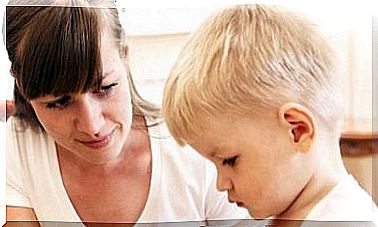Teach Your Child To Face Pranks

Children, you know, love to joke, and sometimes their innocence leads them to do it a bit heavy. It happens at school, in sports contexts and in any other situation. For this reason, we need to help our children deal with pranks from an early age.
Of course, jokes between children may seem like a small matter, of little importance. Yet, the impact they can have on their psychological development can be enormous if the situation continues over time.
The frequency and cruelty of jokes can vary. The main reasons why children can develop this form of interaction are ignorance and a lack of empathy.
In other words, when children are faced with something new, not knowing how to behave, they can make fun of that novelty. In general, they believe it is the best way to interact and have fun. And when the target is our son, he needs to know how to deal with jokes.
Factors Affecting Jokes
- Age of children
- Family support.
- Family values.
- Sociality of children.
- Presence or absence of the school psychologist.
- Behavior of the responsible teacher.
- Manner of introducing and introducing the new classmate, or any other novelty or “difference”.

Science reveals the effect produced by jokes
Humiliation has been scientifically proven to have an effect on people’s brains, which can be more intense than even emotions such as joy or anger.
A group of researchers from the University of Amsterdam carried out an experiment to measure the effect of humiliation and jokes.
For this purpose, a group of individuals was selected, to whom a series of stories were read. In the course of the readings, people had to put themselves in the protagonist’s shoes. This made it possible to control the different emotions felt by people.
The humiliations activated brain regions associated with pain, which led scientists to intuit that a humiliation is perceived by the brain as a very intense sensation of pain.
How to teach children to face jokes?
Parents should try to find out what is happening and analyze what alternatives are available. What is the origin of the jokes? What is their frequency? How does the child react to such a situation? How can they make sure that their children are able to deal with jokes in a healthy way?
It is necessary to be able to distinguish these elements well, in order to solve the problem in time and in the best possible way. At the same time, it is important to understand whether our child is the victim of jokes or, on the contrary, it is he who teases and bullies someone else.
We must teach children to react with elasticity in the face of jokes. In this way they will tackle the problem at the root and will be able to disarm the author of the joke, who, not achieving the desired effect, will get bored and abandon his behavior.

We must not label our children as “cowards” or “whining”, because this does not solve anything or make them stronger. The best choice is always to offer them respect, love and understanding.
After the child has explained what his problem is, it is important that we sympathize with his feelings and tell him some personal anecdote to comfort him.
We need to put special emphasis on the positive aspects of the reaction we had in that situation and make him understand that a solution could be found.
Key tips
- We must never incite him to violence.
- If the jokes are minor, we need to teach our children to ignore the abuser until he is tired.
- If the seriousness of the jokes is moderate or serious, the best thing to do to put an end to the situation is to go to the school and talk to both the teacher and the school psychologist. It is very important not to amplify the discomfort.
- On the other hand, we must teach our child to respect all people. In this way, he will learn to deal with jokes in the most appropriate way.
- After knowing the situation well, we need to support our children unconditionally. It is essential that they feel loved and supported.
- Each situation has a positive side and an important lesson for everyone. Reflecting on this aspect is absolutely fundamental.









